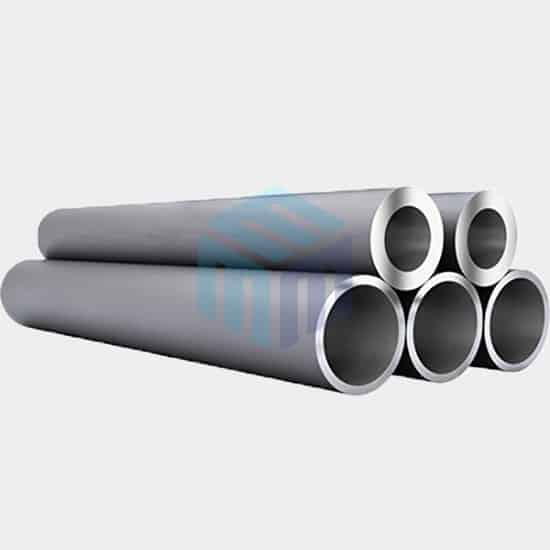Refractory metals are a group of metals with exceptionally high melting points and excellent resistance to heat, wear, and corrosion. The commonly recognized refractory metals include tungsten, molybdenum, tantalum, niobium, and rhenium. Each of these metals has unique properties that make them suitable for various high temperature applications. Here’s a brief overview of the different refractory metals and their applications:
- Tungsten:
- Applications: Tungsten is known for its high melting point, strength, and density. It is commonly used in electrical and electronic industries for filaments in incandescent bulbs, X-ray tubes, electron emitters, and high-temperature furnace components. It is also used in rocket nozzles, armor-piercing ammunition, furnace crucibles and welding electrodes.
- Molybdenum:
- Applications: Molybdenum possesses excellent high-temperature strength, corrosion resistance, and good electrical conductivity. It finds applications in industries such as aerospace, electrical, and chemical. Molybdenum is used for heating elements, furnace components, furnace crucibles, electrical contacts, missile and aircraft parts, catalysts, and as an alloying element in steel.
- Tantalum:
- Applications: Tantalum is highly resistant to corrosion and has good thermal conductivity. It finds extensive use in the chemical industry, where it is used for equipment such as heat exchangers, reaction vessels, and pipes that handle corrosive materials. Tantalum capacitors are also widely used in electronics for their high capacitance, reliability, and stability.
- Niobium:
- Applications: Niobium has excellent heat resistance, low-temperature ductility, and superconductivity at very low temperatures. It is used in the aerospace industry for rocket nozzles, airframes, and structural components. Niobium alloys are also employed in the chemical industry, nuclear reactors, superconducting magnets, and medical implants.
- Rhenium:
- Applications: Rhenium has one of the highest melting points among all elements and excellent resistance to oxidation. It is used in the aerospace industry for jet engine components, such as turbine blades, nozzles, and combustion chambers. Rhenium is also utilized in electrical contacts, thermocouples, and catalysts.
While platinum, zirconium, and titanium are not traditionally classified as refractory metals, they are widely used in various industries for their unique properties. Here are some of the applications of these metals:
- Platinum:
- Catalysts: Platinum is an excellent catalyst and is extensively used in the chemical industry for various catalytic processes, such as in catalytic converters for automobiles and in the production of chemicals like nitric acid and hydrogen peroxide.
- Electrical Contacts: Platinum’s high electrical conductivity and resistance to corrosion make it suitable for electrical contacts in devices such as switches, connectors, and sensors.
- Jewelry and Investment: Platinum’s lustrous appearance, rarity, and resistance to tarnish make it highly valued for jewelry and as an investment metal.
- Zirconium:
- Nuclear Industry: Zirconium is widely used in the nuclear industry due to its excellent corrosion resistance and low thermal neutron absorption. It is used as cladding material for fuel rods in nuclear reactors.
- Chemical Processing: Zirconium’s resistance to corrosion and high-temperature stability make it suitable for handling corrosive chemicals. It is used in equipment such as pumps, valves, heat exchangers, and reactors in chemical processing plants.
- Aerospace: Zirconium alloys are used in the aerospace industry for components like landing gear, airframes, and turbine blades due to their high strength and heat resistance.
- Titanium:
- Aerospace and Defense: Titanium’s high strength-to-weight ratio, excellent corrosion resistance, and heat resistance make it a preferred choice in aerospace applications. It is used in aircraft components, such as airframes, landing gear, and engine parts. It is also used in military applications, including armor and missile components.
- Medical Implants: Titanium’s biocompatibility and corrosion resistance make it suitable for medical implants, such as artificial joints, bone plates, and dental implants.
- Chemical Industry: Titanium is used in the chemical industry for equipment like heat exchangers, reaction vessels, and piping systems due to its corrosion resistance.
While not considered refractory metals in the strict sense, platinum, zirconium, and titanium possess properties that make them valuable in specific applications where high-temperature stability, corrosion resistance, or other desirable characteristics are required.
These refractory metals, with their exceptional properties, play a crucial role in demanding applications where high temperatures, corrosion resistance, and mechanical strength are required. It’s worth noting that the specific applications of these metals may vary based on their unique properties and characteristics. Additionally, advances in materials science and technology continue to expand their applications into new and innovative areas.







